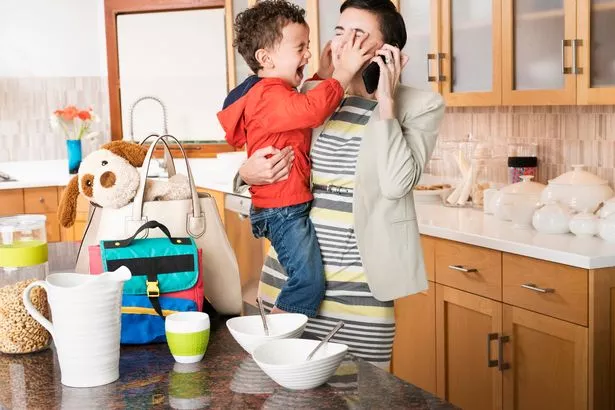Parenting professor’s morning regimen avoids tantrums before breakfast





Breakfast time can be stressful for families with young children, so we asked an expert for his top tips on how to make sure the start to the day runs smoothly
When it comes to improving your child’s behavior, our specialist has one word of wisdom in particular: routine. An Honorary Associate Professor at the University of Warwick, Matt Buttery feels consistency is key to allowing your youngster to flourish, while maintaining harmony at home.
“Have clear, consistent rules and routines,” says the CEO of Triple P UK, a family support system that believes in positive parenting.
“Regular routines can make a big difference to your family’s daily life.
“A consistent routine helps create a stable environment where your child can flourish. As they grow older, children will develop their own routines, having learned from your example.”
READ MORE: ‘A Haribo hack changed my life and now I aim to save parents £3,000 a year’
Preparing for the morning the night before can be a great way of ensuring the morning routine runs smoothly. “For example, packing your child’s bag or laying out school uniforms the night before can reduce stress in the morning,” says Matt.
“Likewise, establishing a regular bedtime and limiting screen time can also promote healthy habits for the whole family.”
As well as routine, the expert feels communication is key to maintaining a healthy relationship with your children. “Parenting is a journey filled with ups and downs,” says the expert.
“Occasionally, your child may behave in ways that are hard to understand, and this can lead to feelings of frustration. Communication is central to a healthy parent-and-child relationship.
“Parents play a huge part in helping children express and cope with their needs and feelings.”
‘Big emotions’ like anger or “Talking with your child about emotions gives them understanding and tools to express themselves,” he says. “They’ll also learn from seeing how you manage your feelings. If your child is exhibiting bad behavior, try to gauge which emotion they may be feeling.
“For example, if your child shows anger, you can ask them questions that acknowledge their feelings and help them to reflect, such as: ‘You seem angry. Is that because you thought it wasn’t fair?’ This will give your child a moment to reflect on their emotions, providing a teachable moment of self-assessment.”
Popular methods of discipline for children include time-outs, which involve removing children from a situation for a brief time, so that they can calm down and reflect on their behavior. But our expert says more positive parenting is a game changer, with praise a huge part of making your child behave positively as well as encouraging social responsibility.
“Giving specific praise, like: ‘Thank you for putting away the dishes’, will help them feel good about themselves,” says Matt. “By rewarding positive behavior, they experience an ‘intrinsic reward’- a psychological benefit that fosters satisfaction when they engage in socially responsible actions.”
READ MORE: Parents praise ‘game-changing’ Boots electric toothbrush for children
